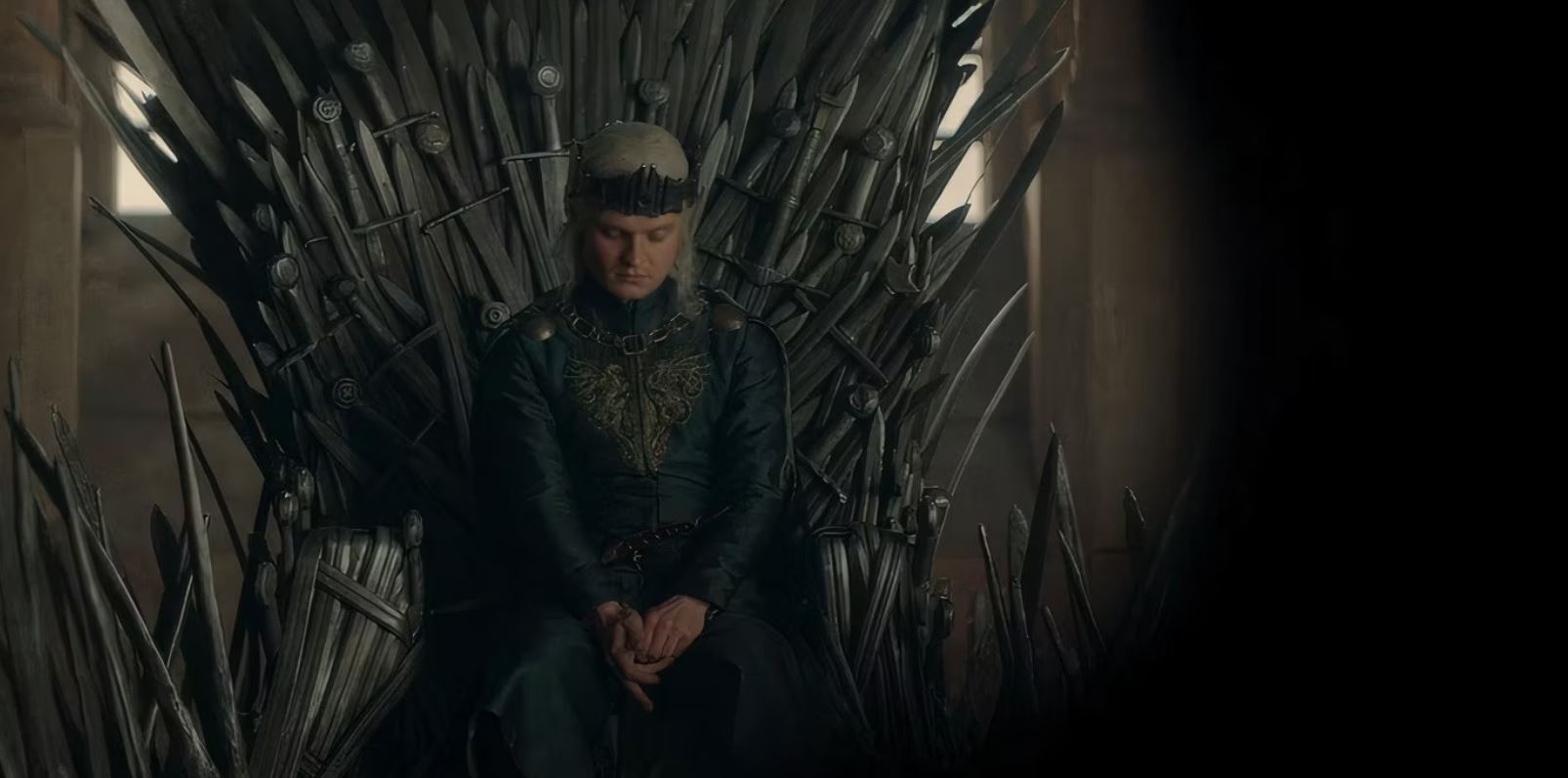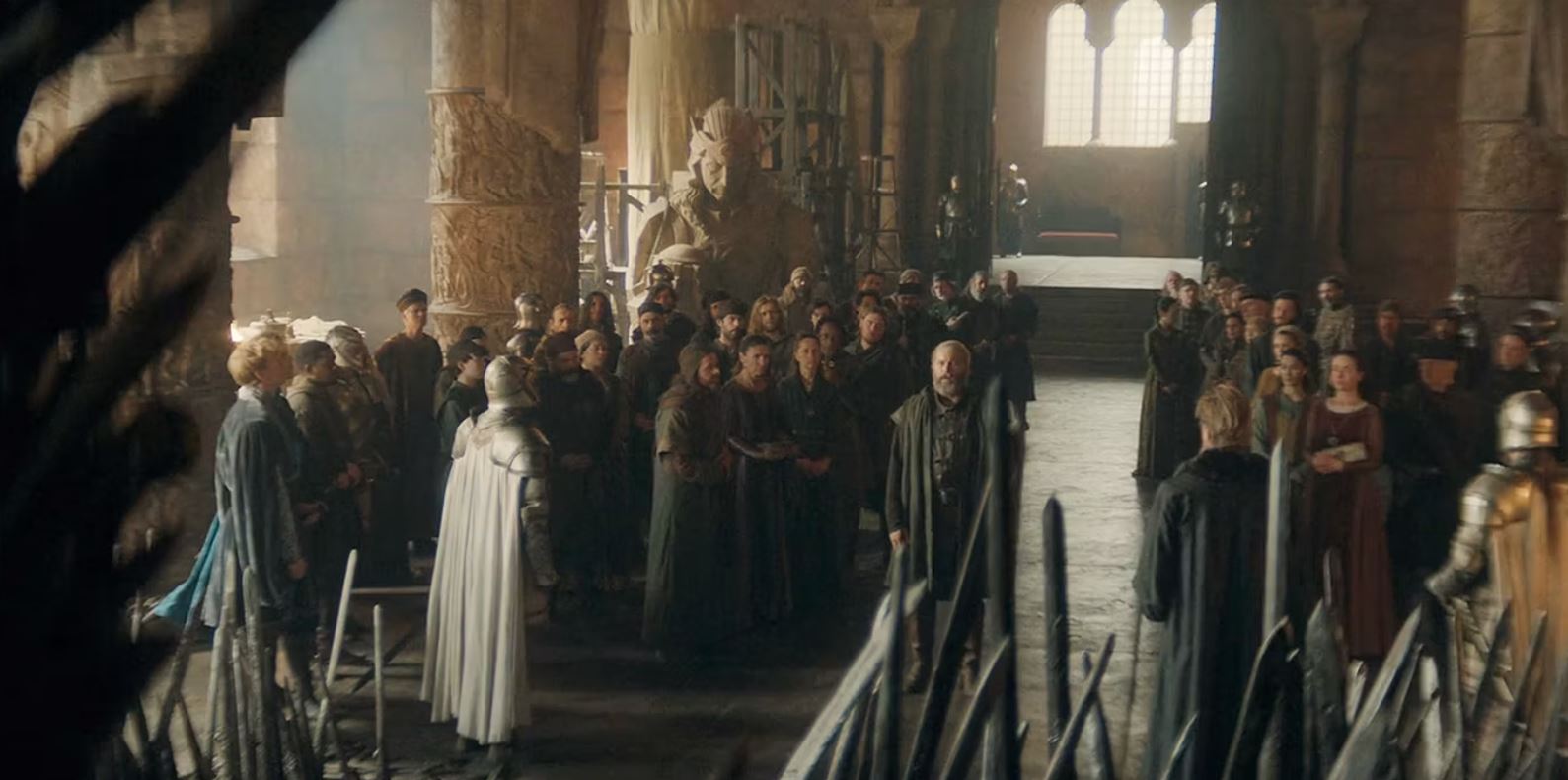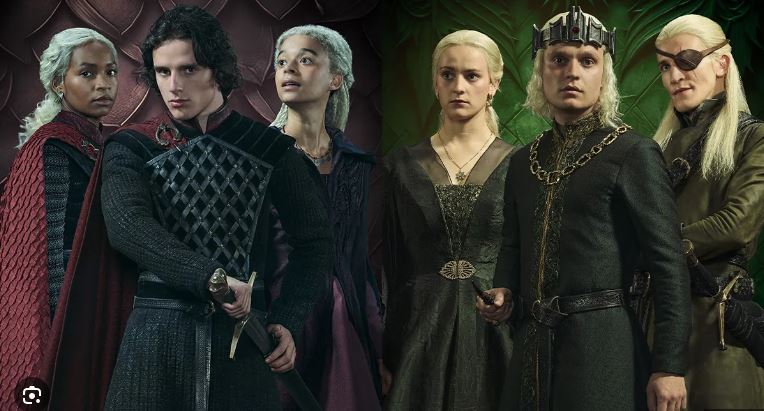House of the Dragon has done a fine job establishing itself as a worthy successor to Game of Thrones. Based on the book Fire & Blood by author George R. R. Martin, this prequel to the fantasy political drama takes audiences to when House Targaryen was at the height of their power, with more living members of their family, and fire-breathing dragons, alive than ever before. Following the death of King Viserys I (Paddy Considine), the Seven Kingdoms find themselves plunged into a civil war as his eldest child, Queen Rhaenyra (Emma D’Arcy), and his eldest son, King Aegon II (Tom Glynn-Carney), fight to see which of them will continue the Targaryen dynasty and sit upon the Iron Throne.
One way that the show has managed to distinguish itself from Game of Thrones is by focusing on the plight of the smallfolk and how their lives are being affected by the war. While Game of Thrones had a few storylines that focused on everyday people, they were always wrapped up in something else, such as religious doctrine, as seen with the Sparrow movement in Season 5. House of the Dragon doesn’t muddle things, instead offering a brutal look at how innocent people are caught up in the ambitions of those with power. To quote Lord Varys (Conleth Hill), “Why is it always the innocents who suffer most when you high lords play your game of thrones?”
How Has the Dance of the Dragons Affected the Smallfolk?

When the civil war begins, one of Rhaenyra’s first commands is for her ally, Corlys Velaryion (Steve Toussaint), to use his navy to blockade the gullet, thus preventing supplies from reaching King’s Landing by sea. Normally, this wouldn’t be too much of an issue, since King’s Landing can import food from the surrounding Crownlands and the Stormlands to the south. However, most of this food doesn’t go to the people of the city. Meat in particular is being called for in large quantities to feed the adult dragons, with a portion of every farmer’s livestock demanded as a regular tithe. The Season 2 premiere, “A Son for a Son,” shows one shepherd’s attempt to ask King Aegon for recompense for the loss of his flock, since without them, he has nothing. Meanwhile, others in the city, such as the blacksmith Hugh (Kieran Bew), are forced to work hard to make siege equipment and weapons for the war and receive no payment.
As the war shifts from one of ink to one of blood, the troubles of the smallfolk only increase. By Episode 5, “Prince Regent,” the quality and quantity of the food have diminished to meager levels. Nobody has enough to eat, and what little they do have tends to be moldy or on the brink of rot. While this is due to the Black faction’s blockade, the people blame the Greens for their woes, since they are the nobles in charge of the city. It also doesn’t help that Prince Aemond (Ewan Mitchell) has ordered that the gates of King’s Landing be closed to prevent the populace from finding better lives elsewhere in Westeros. As the Red Keep continues to provide nothing but silence towards the hungry smallfolk, their resentment grows until it bursts into a full-blown riot in the aptly named Episode 6, “Smallfolk.”
Unfortunately, the smallfolk are without friends even outside the capital city. In the Riverlands, Rhaenyra’s husband-uncle, Prince Daemon Targaryen (Matt Smith), attempts to rally the Riverlords to the cursed castle, Harrenhal, so he can press his own claim to the throne. However, some of the houses prove difficult, such as House Bracken, who refuse to fight alongside their Blackwood rivals. So Daemon tasks Ser Willam Blackwood (Jack Parry-Jones) with terrorizing the Bracken smallfolk. This fear campaign backfires, however, and makes more Riverlords turn on Daemon, meaning that innocent people were brutalized for nothing.
Why Are the Smallfolk Important in ‘House of the Dragon’?

One could be forgiven for wondering why the audience should care about the plight of the smallfolk. After all, the principal characters are all of noble birth, and many of them overlook the smallfolk. Yet the smallfolk represent the beating heart of this conflict. Regardless of whether Rhaenyra or Aegon ends up sitting on the Iron Throne, the result is that they will rule over these people and make decisions that will either improve or hinder their day-to-day lives. They have little care about who will win in the end, so long as their king or queen will provide them with food and stability.
As shown through Game ofThrones’ Sparrow movement, an unhappy populace can be a dangerous thorn in the side of the powerful, since they only remain powerful because of the smallfolk. A glimpse of this is seen through the riots in “Smallfolk,” stirred up by the efforts of Rhaenyra and her new ally, Mysaria (Sonoya Mizuno). Having lived among the populace of King’s Landing for years, Mysaria knows their grievances and how to stoke them to action. A few boats loaded with supplies later, the people of King’s Landing are shouting Rhaenyra’s name in the streets. Now, she’s considered a queen who cares about her people, unlike the Greens, who regularly cart livestock to the mouths of their dragons while ignoring how their own people starve. Thus, the smallfolk become another weapon in this war, one that Rhaenyra can use to strike at the heart of the Greens’ power base without risking her dragons.
It is also a weapon that cannot be dealt with in the usual Green way. Aemond and Ser Criston Cole (Fabien Frankel) are well-versed in traditional warfare, which won them the Battle at Rook’s Rest. Yet when Cole brought the head of Rhaenyra’s largest dragon, Meleys, back to King’s Landing, he failed to achieve the hero’s welcome he was expecting. Instead, the people saw a weakness in House Targaryen. Coupled with Rhaenyra’s food delivery, it’s no wonder the smallfolk cornered Dowager Queen Alicent Hightower (Olivia Cooke) and her daughter, Queen Helaena Targaryen (Phia Saban) when they went to pray. The illusion of Targaryen invincibility has been broken, and not even the fear of death can keep the smallfolk from unleashing their pent-up frustrations at those they feel are to blame. Attempts to put them down with force only embolden them, as Aegon’s newly-appointed Kingsguard learned the hard way.
Does Anyone Truly Care for the Smallfolk in ‘House of the Dragon’?

In Game of Thrones, Varys acted as the champion of the smallfolk. Everything he did, be it pulling his invisible strings or working towards one leader’s rise or fall, was to provide the realm with a monarch who wanted peace and stability. This, in turn, would improve the lives of innocent civilians. But House of the Dragon lacks this kind of champion.
For the most part, the Black faction has people who think about the smallfolk, but each has a caveat against them. Mysaria attempts to negotiate with Otto Hightower in Season 1 for an end to barbaric fighting pits, and she does constantly remind Rhaenyra of the smallfolk when she makes her plans. Yet, when her negotiation backfires, and she comes to Rhaenyra with nothing but her knowledge of the city, she is willing to use the populace as a weapon to help win the war. Princess Rhaenys (Eve Best) cautioned Rhaenyra against unleashing her dragons due to the damage they could cause to the innocents, but also killed hundreds of spectators when she burst through the dragonpit during Aegon’s coronation ceremony. Even Rhaenyra has ulterior motives: she is driven by the dream of Aegon the Conqueror, called the Song of Ice and Fire, and believes she is destined to save Westeros from the coming darkness. It’s a reminder that the Targaryens see themselves as Gods among men, making it near-impossible for even the best of them to truly connect with the people they rule over.
Yet soon the smallfolk might just receive their champion, as Rhaenyra searches for people with Targaryen blood to tame her unclaimed dragons. So far, she is looking among noble bloodlines, but one dragon, Seasmoke, seeks out Addam of Hull (Clinton Liberty) as his rider. Though he is the bastard son of Corlys Velaryon, he lived his whole life lowborn and longs for the chance to prove himself worthy of something greater. In King’s Landing, local raconteur Ulf (Tom Bennett) claims to be the child of Prince Baelon Targaryen, making him the uncle of Rhaenyra and brother of Daemon. Between his cups, he has voiced his support for Rhaenyra and his displeasure at the Greens for their indifference to the suffering of the people they rule over. Should he and other dragonseeds make their way to Rhaenyra, she could find herself with more lowborn voices to keep her grounded and remind her of what she is truly fighting for. What good is the throne if, like Aegon and Aemond, Rhaenyra finds herself surrounded by a million voices who hate her for her ignorance of their woes?
House of the Dragon Seasons 1 and 2 are available for streaming on Max.
